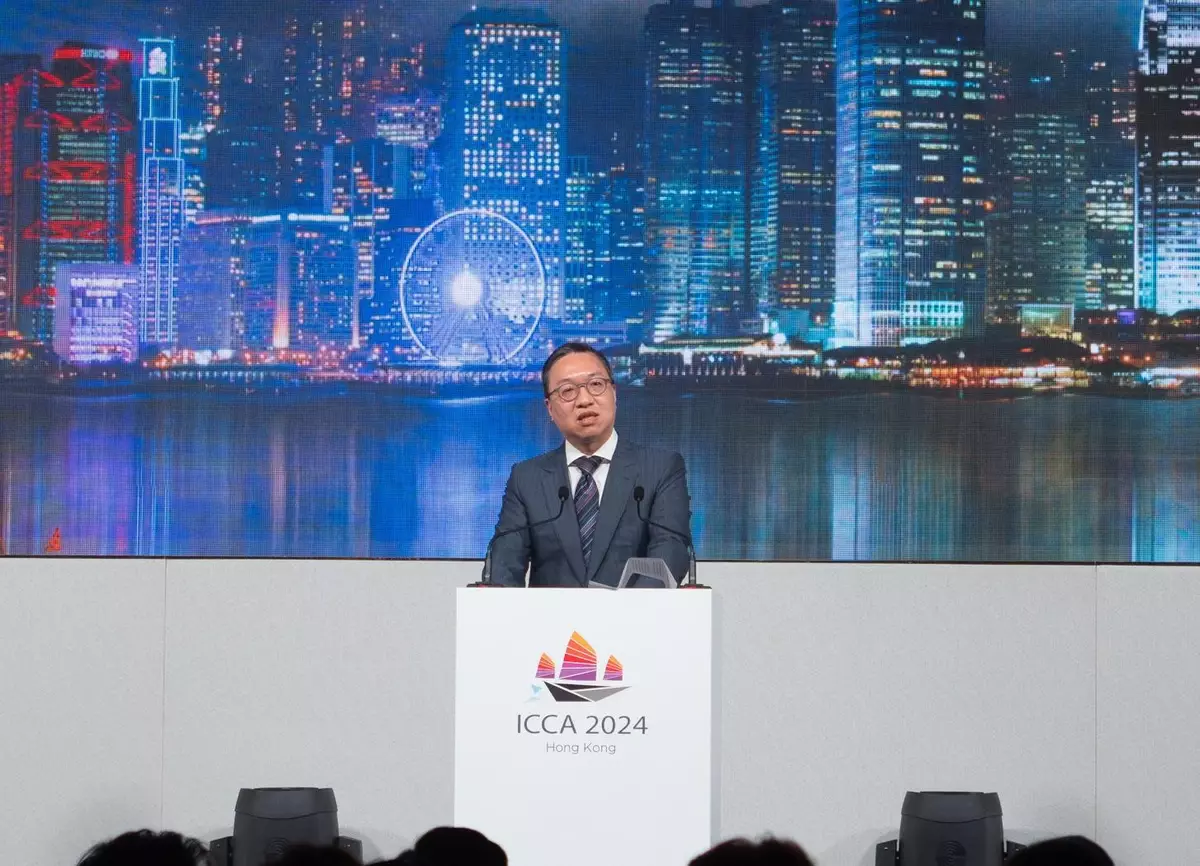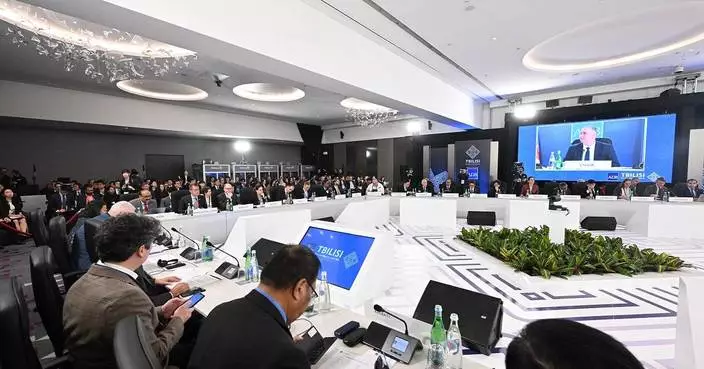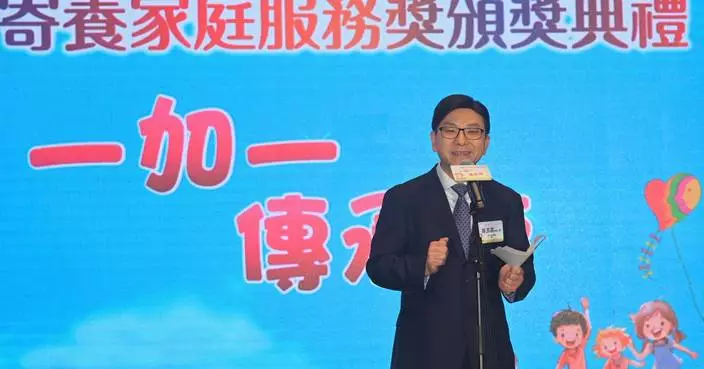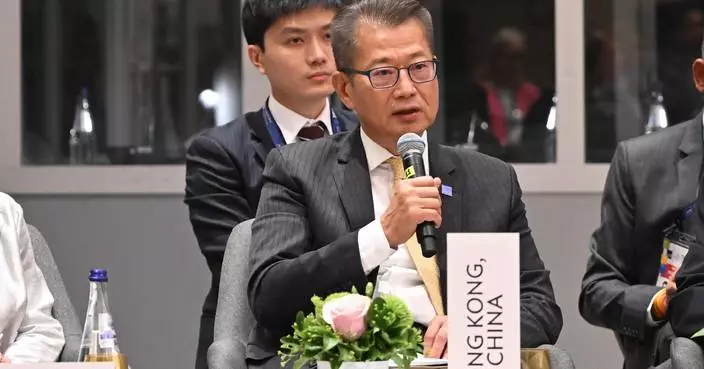Unlocking the secrets: the regulation of health food products
Following is a question by the Hon Chan Hok-fung and a written reply by the Secretary for Health, Professor Lo Chung-mau, in the Legislative Council today (April 24):
Question:
It has been reported that as at the 29th of last month, five people in Japan had died after consuming health food products containing red fermented rice. Regarding the regulation of health food products, will the Government inform this Council:
(1) of the legislation currently in place to regulate health food products and nutrition supplements containing Chinese medicines, western medicines, and ingredients other than such two types of medicines, and which government departments are responsible for the related investigations and enforcement actions;
(2) whether it has compiled comprehensive statistics on the types and numbers of health food products which members of the public currently can purchase in the market and import through the Internet; if so, of the details;
(3) whether it received cases of health hazards caused by the consumption of health food products in the past five years; if so, of the number of such cases and their details, including the hazards caused and the organs affected; and
(4) given that the Government will establish the Hong Kong Centre for Medical Products Regulation to help restructure and strengthen the regimes for regulating, vetting and approving medicines (including Chinese medicines and western medicines), whether health food products will be subject to the Centre's vetting and approval in future; if so, of the details and timetable?
Reply:
President,
The Government has been keeping in view the recent incidents involving deaths after consumption of products containing red fermented rice in Japan. Red fermented rice is produced by fermenting steamed rice with a strain of red yeast fungus, and has been used in Asia as a food colourant, flavor enhancer, for meat preservation and wine brewing. During fermentation, red fermented rice could produce lovastatin, a chemical similar to cholesterol-lowering pharmaceutical substance. However, the level of lovastatin in ordinary conventional foods containing red fermented rice is very low under normal application, and normal consumption of these foods does not pose any health risk. Although the Japanese authorities are still investigating the recent incidents, according to the latest information released by the Ministry of Health, Labour and Welfare of Japan, the red fermented rice ingredient involved was found to contain an unintended ingredient, namely puberulic acid, which is not derived from the normal process of red fermented rice production, and the relevant authorities of Japan are investigating whether there is any causal relationship between the unintended ingredient and the occurrence of kidney disorders and deaths after consumption of these products.
The relevant products are not registered drugs nor regulated as pharmaceutical products in Japan. The products have not been marketed by the relevant company in Hong Kong. Considering that red fermented rice is widely used in food, in 2019, the Pharmacy and Poisons Board of Hong Kong (the Board), after making reference to the practices of other drug regulatory authorities, decided that products containing lovastatin with a daily dose of about 10 milligrams or more would be regarded as pharmaceutical product, which shall be registered by the Board before they can be sold or distributed in Hong Kong. According to the record, there is no registered pharmaceutical product in Hong Kong containing red fermented rice as active ingredient.
In consultation with the Environmental and Ecology Bureau, the Commerce and Economic Development Bureau, the Department of Health (DH) and the Hospital Authority, the reply to the question raised by the Hon Chan Hok-fung is as follows:
(1) The international community has no consistent definition and regulation of "health food products". Broadly speaking, such products may contain different names, e.g. dietary supplements, nutraceuticals, natural health products. The Government has been adopting a multi-pronged strategy in regulating these products. In Hong Kong, depending on their individual nature, composition, content of the claims made, usage, dosage, packaging specifications, etc, such products are regulated under different legislations and respective government departments, including the Pharmacy and Poisons Ordinance (PPO) (Cap. 138), the Chinese Medicine Ordinance (CMO) (Cap. 549), the Undesirable Medical Advertisements Ordinance (Cap. 231), the Trade Descriptions Ordinance (TDO) (Cap. 362) and the Public Health and Municipal Services Ordinance (Cap. 132).
Product that falls within the definition of pharmaceutical product under the PPO and proprietary Chinese medicine (pCm) under the CMO must comply with the respective regulatory requirements for safety, quality and efficacy and be registered before they can be sold and supplied in Hong Kong. The PPO and the CMO also stipulate the licensing and practicing requirements for drug dealers. The DH has a market surveillance mechanism in place to monitor the safety, efficacy and quality of drugs. To protect the public from being induced by medical or health claims and thereby seeking improper self-medication that may result in delay in seeking medical treatment, the Government also regulates the labelling and promotion of products with medical or health claims (including products that are not pharmaceutical product or pCm) through the Undesirable Medical Advertisements Ordinance. The Customs and Excise Department (C&ED), as the principal enforcement agency of the TDO, will take enforcement actions against unfair trade practices (including false trade descriptions) prohibited under the TDO.
As for food in general, it is regulated under relevant provisions of the Public Health and Municipal Services Ordinance. The Centre for Food Safety under the Food and Environmental Hygiene Department, as the enforcement agency, carries out relevant work to ensure that relevant food is fit for human consumption, and is in compliance with relevant food safety standards and food labelling requirements. The relevant requirements also apply to those "health food products" which fall within the definition of "food".
In addition, the claims of "health food products" in licensed broadcasting services are also subject to regulation by the relevant provisions or codes under the Broadcasting Ordinance (Cap. 562) and the Broadcasting (Miscellaneous Provisions) Ordinance (Cap. 391). The Communications Authority will continue to take enforcement and regulatory actions in accordance with the relevant provisions and codes.
Different regions have adopted various practices as to whether to adopt more specific regulatory regimes for "health food products". Indeed, the nature and risks associated with different types of "health food products" also differ. The Government will continue to closely monitor the latest international regulatory developments and the market situation for "health food products", conduct risk assessment and review the relevant legislation and regulatory arrangements in a timely manner. At this stage, the Health Bureau is of the view that, from risk perspective, the safety of the products concerned has already been appropriately regulated under the prevailing framework, and that it would be more appropriate to strengthen relevant public education and publicity as well as the provision of information than to directly regulate the health claims of "health food products".
(2) and (3) The DH has been monitoring the safety, efficacy and quality of drugs through an established market surveillance mechanism. The DH collects samples of products in the market from various channels (including the Internet) for drug-related testing. If a product is found to have failed to comply with relevant statutory requirements (such as not registered, or found to have quality defects or adulterated with harmful substances), the DH will issue a press release as soon as possible to safeguard public health. Upon receipt of reports of suspected contravention of drug-related offences, including suspected illegal sale or possession of unregistered pharmaceutical products or pCm, the DH will follow up the cases immediately. If there is any contravention of drug-related offences found, the DH will take enforcement action and will conduct joint enforcement operations with the C&ED or the Hong Kong Police Force, or refer the cases to other law enforcement departments for follow-up actions.
In the past five years (from 2019 to 2023), the DH conducted about 41 370 inspections against Authorised Sellers of Poisons (commonly known as pharmacies) and Listed Sellers of Poisons (commonly known as medicine stores), and about 23 570 test purchase operations. In addition, the DH also conducted a total of about 28 590 inspections against licensed Chinese herbal medicines retailers. During the same period, the DH handled 137 conviction cases involving unregistered pharmaceutical products, with the highest penalty of imprisonment of 10 months or a fine of up to HK$75,000. There were also seven cases involving unregistered pCm, and the maximum fine was HK$10,000. The above 137 convictions included four cases in which the products claimed to be "health food products" were actually found to contain controlled drug ingredients.
In addition, the DH has also established a surveillance mechanism against online sales platforms and social media platforms. In the past five years, the DH has detected about 16 680 Internet links that might involve suspected illegal sale of controlled drugs, and about 330 Internet links involved in suspected illegal sale of unregistered pCm in the Internet. The relevant platforms have removed the problematic links as requested by the DH.
Other relevant bureaux and departments do not keep the information mentioned in the question.
(4) It is announced in "The Chief Executive's 2023 Policy Address" that the Government will enhance the current evaluation and registration mechanism for drugs, and establish an internationally renowned regulatory authority of drugs and medical devices, to progress towards the primary evaluation of applications of new drugs and medical devices.
The Government will set up a preparatory office under the DH in the first half of 2024 to review the current regulatory function within the DH including Chinese medicines, western medicines and medical devices, study the restructuring and strengthening of the regulatory and approval regimes for drugs, medical devices and medical technology and put forward proposals and steps for the establishment of the Hong Kong Centre for Medical Products Regulation (CMPR). The CMPR will adopt the primary evaluation approach in approval of registration applications of new drugs and medical devices under relevant legislations regulating Chinese medicines, western medicines and medical devices, with a view to attracting more local, Mainland and overseas pharmaceutical and medical device enterprises to conduct research and development and clinical trials in Hong Kong.
"Health food products" that are not classified as drugs and medical devices will continue to be regulated in accordance with other legislations and arrangements currently applicable to them.

Source: AI-generated images








